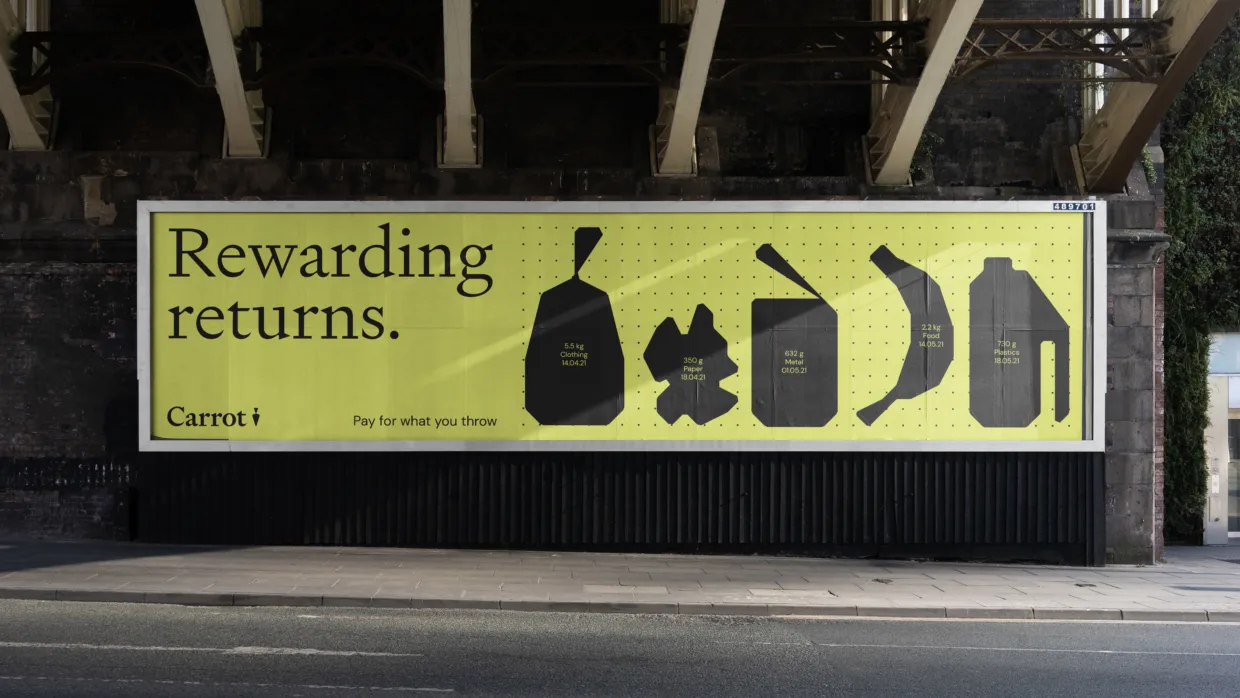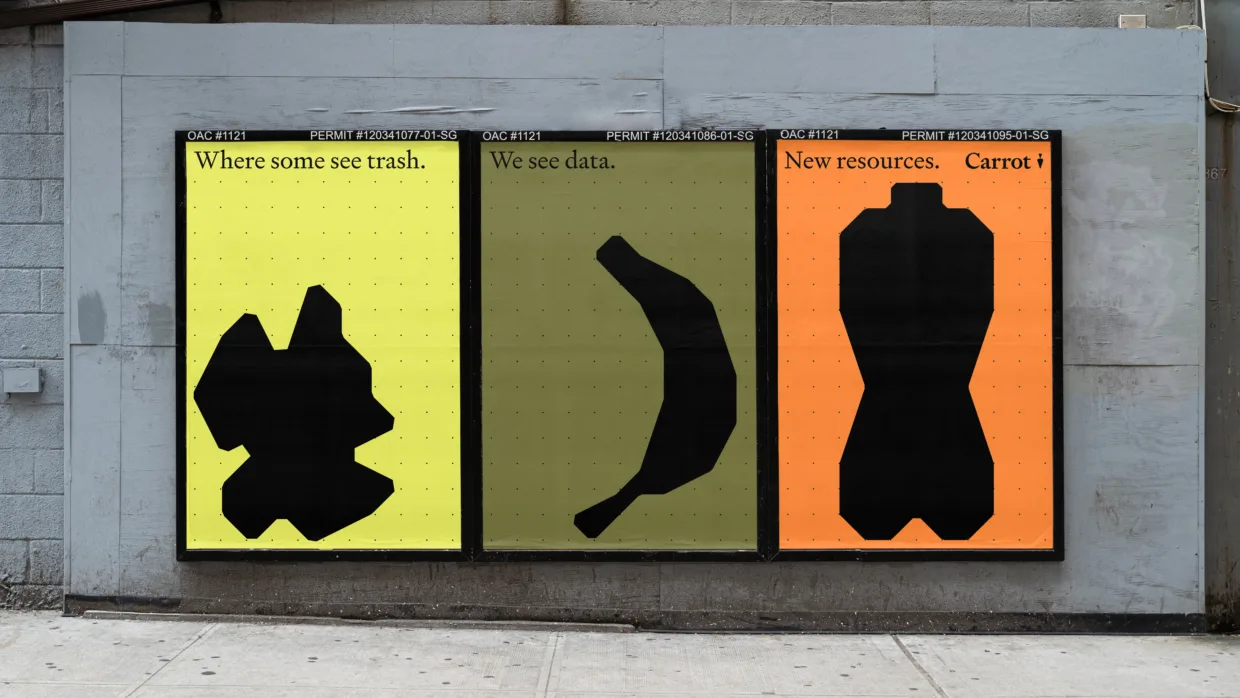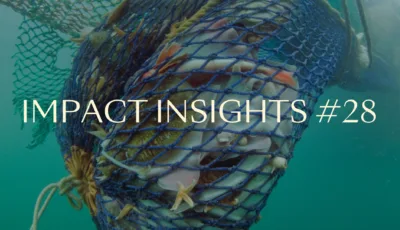“It’s the end users we need to engage”. Norselab portfolio WasteIQ rebrands to Carrot.
In February, Norselab announced a new investment within the circularity theme with a 30 MNOK investment into the Bergen-based company WasteIQ. 8 months later, the company has undergone a complete rebranding process, resurfacing as Carrot. With its vision to create a world of circular materials, the company is taking on the world’s 2 billion tons waste problem.

Earlier this year, Chief Investment Officer at Norselab Yngve Tvedt shared that Norselab had identified a huge potential in WasteIQ - both commercially and in terms of environmental impact. The company ticked every single one of the Norselab Fund I investment criteria by targeting a resource-intensive industry with a product offering designed to create net positive impact for people and the planet.
To unleash the company’s full potential, and in preparation for ambitious growth plans, the company set out on an extensive rebranding process carried out in cooperation with award-winning design agency Heydays.
The company revealed its new brand name and identity on October 1st.
Carrot - Rewarding Returns
Linear value chains present a huge, global challenge. Globally, we produce 2 billion tons of it each year. Consumers are becoming increasingly apathetic as sustainability challenges grow bigger. Does it really make a difference to sort and recycle waste?
The waste problem is complex and has wide-ranging consequences. The lack of circularity is an issue both in terms of resource availability, and in terms of carbon emissions in waste treatment. In this context, it is crucial to help people – both direct customers concerned by waste management and their users – understand that their efforts count. Carrot solves this by rewarding sustainable behaviors such as increased sorting and reduction in residual waste.
The new brand name reflects the effects that may be created using Carrot’s solutions. Excluding names that describes concretely what the company does was a deliberate choice in their approach;
-A name that describes a company’s activities too precisely may hamper the company’s growth potential, explains Chief Communications and Sustainability Officer Maria de Perlinghi.
-You run the risk of ending up with an outdated brand faster, as a descriptive name often limits your ability to embrace strategic changes. You are generally better off with a more evocative name, and in Carrot’s case, the name says something about the effect the company is trying to create. The idea is derived from the globally known metaphor “carrot and stick”, and translates the company’s ambition to be a positive and motivating force in the circularity game.

Untraditional in a B2B context
While a company’s name only makes up a small part of its identity - it took some time for CEO and co-founder Tore Totland and his team to open their minds to a name without an obvious connection to their core product offering.-If we were to act completely rational in this process, we would end up with something similar to our old name, WasteIQ. But as there are no other current players in the category we’re in, it’s our job to define it, Totland shares.
Maria de Perlinghi says that the new brand will appear untraditional and different in a B2B context as it resembles a consumer product more than other B2B products.
-It was important to us to create a brand that people can connect with, because even if Carrot is a B2B company, they must influence and mobilize end users for the product to work optimally.
Going forward
Going forward and to achieve their ambitious growth plans and international expansion, Carrot is rapidly expanding their team. Thus far, the team counts 14 employees, and they have recently recruited from both Spacemaker and Oslo Market Solutions.
About Carrot:
Carrot is on a mission to create a world of circular materials through collecting data about who throws what, and how much it is. This way, public and private waste management companies can reward users for their efforts to sort recyclable materials with Pay-As-You-Throw (PAYT) solutions, increasing the granularity of sorted materials.


